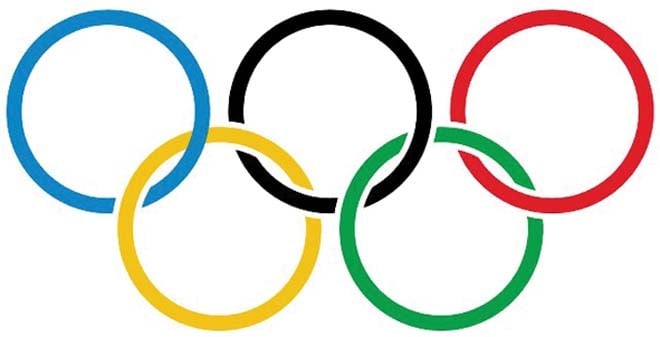

When Pierre de Coubertin initiated the Olympic Movement in 1894 and invited his friends to a congress, he must have had no idea that someone somewhere in a conflict-ridden country of South Asia will turn his noble movement into a hotbed of politics.
Besides bringing together athletes of the world in the great four-yearly sport festival, the Olympic Games, the aim of the Movement is to educate young people through sport in a spirit of understanding and of friendship, thereby helping to build a better and more peaceful world.
Coubertin wanted the schools in France to include compulsory organised sports in their programmes. His objectives are summed up in the "Aims of Olympic Movement" which appear in the original Olympic Charter.
This Charter has been revised many times and his "Aims" are now called the "Fundamental Principles".
The six fundamental principles that appear at the beginning of the Charter lay out the philosophy of Olympism, blending sport with culture and education.
The goal of Olympism is also to place sport at the service of the harmonious development of man, with a view to promote a peaceful society concerned with the preservation of human dignity.
Sport lovers in Pakistan get shivers in their spines when Pakistan’s participation in international sports events is endangered because of the ongoing tussle between two big wigs for the title of the POA President.
Thanks God the father of modern Olympics is not alive to witness the doleful state of his Movement in Pakistan where Olympic associations hardly offer any programme for the promotion of the Movement and are nothing more than parallel sports bodies, who instead of promoting Olympism are busy settling personal scores.
It is very unfortunate that our understanding of integrating sport with education is worse than what Coubertin had a century ago.
The challenge for any National Olympic Committee (NOC) is not to defeat the existing sport system by creating parallel bodies, but to identify the ways the Olympic values can support the existing educational priorities, and to adapt and use the various activities in ways that are appropriate for the local belief systems and situations.
Are our Olympic bodies aware of their role? Do they have the requisite human resource to plan and execute the programmes in our education systems by persuading the education ministry about the utility of such fascinating programmes? Do they know what the Olympic Movement offers for the betterment of our youth living in violence-stricken society?
We must understand that the theme of "Youth Inspiration" was not picked out of the blue by IOC for the London Olympics, but the idea was crystal clear to promote the education values of Olympism among the youth by launching Olympic programmes in education institutions and communities.
It is very unfortunate that we have so far failed to capitalise on such wonderful initiative that revolves around the three aspects of learning: cognitive (intellectual), affective (social & emotional) and kinesthetic (physical).
This failure has occurred because our educational system focuses only on the cognitive learning and offers little space to affective and kinesthetic learning.
The challenges are indeed daunting and overwhelming, but there are great opportunities in them as well.
I am aware of the fact that the POA President tried his best to convince the respective ministries to make full use of IOC initiatives like youth inspiration programme, but it fell on deaf ears of the mighty bureaucracy.
The IOC fully realises that different countries have different education systems and priorities; and that programmes and administrations differ in these educational systems. This is why it has come out with an interesting "Olympic Education Toolkit" which is easy to understand and adapt according to the needs of the specific education system.
Without threatening any particular education philosophy, the Olympic education promotes five basic values derived from its fundamental principles. These are fair play, joy of effort, respect for others, pursuit of excellence and balance between body, will and mind.
I am sure that these five values are neither the agenda of any foreign power nor in contrast with the ideological values of the state and can be incorporated in the curricula to develop the virtues in our youth that can help them effectively address the scourge of violence, terrorism and ethnic divides in the society .
In the North African Algeria Olympic education programmes were started by its National Olympic Association (NOA) in 2002 by establishing a Pedagogy and Planning department.
The education programmes organised by the National Olympic Committee and Academy of Albania in collaboration with the Ministry of Education can be of special interest for the POA.
In Albania the Olympic committee, the education ministry, the regional directorate of education, and the University of Sport aimed to increase familiarisation with the Olympic ideals and sport for better life of youth.
The initiative includes the organisation of an Olympic Week every two years in each school of Albania.
For one week various activities are organised by schools, including class activities in all curriculum subjects, art contests, and a sporting contest on the last day of the week, followed by an Olympic quiz.
It is through their learning in health and physical education that students develop a positive and responsible attitude to their physical, mental, emotional, social and spiritual well-being.
It is through sport that they learn to respect the rights of others and develop a sense of social justice.
The fault lines are deep and obvious; force alone has never helped address and eradicate the social ills of a society.
It is imperative for us to save our future generations from the existing social perils and evolving threats of multiple natures which can only be addressed through a holistic education system and social reforms with the true spirit of the Olympic Movement.